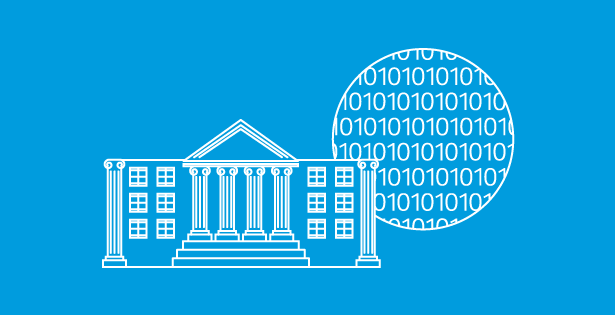
Here are the top 5 things to know in Government Contracting this week:
- Compliance and Regulation Updates:
This week, the Department of Defense (DoD) issued new cybersecurity requirements under the Cybersecurity Maturity Model Certification (CMMC) program. Contractors bidding on DoD contracts must now comply with specific cybersecurity standards to safeguard sensitive data and ensure the security of defense-related information. Staying abreast of these evolving compliance guidelines is paramount for contractors seeking to maintain eligibility for lucrative defense contracts.
The Small Business Administration (SBA) announced updates to the HUBZone program, aiming to streamline the certification process for small businesses located in historically underutilized areas. By simplifying the eligibility requirements and enhancing program transparency, the SBA seeks to increase opportunities for HUBZone-certified businesses to secure government contracts. Contractors should monitor these regulatory changes to capitalize on the benefits offered by the revamped HUBZone program.
Lastly, the General Services Administration (GSA) has announced significant changes to the Federal Acquisition Regulation (FAR) aimed at modernizing and streamlining the federal procurement process. Updates include revised thresholds for simplified acquisition procedures, new regulations for small business contracting, enhanced contract administration and oversight, and stricter requirements for subcontracting and supply chain management.
- ERP Systems in Government Contracting:
The Department of Defense (DoD) has announced a new initiative to enhance the efficiency and effectiveness of government contracting processes through the integration of advanced ERP systems. This initiative will require all DoD contractors to implement an ERP system that meets stringent cybersecurity and reporting standards to safeguard sensitive information and improve overall contract management.
Microsoft Dynamics 365 is a preferred ERP system for government contractors due to its robust capabilities in financial management, project planning, and resource optimization. Contractors utilizing Microsoft Dynamics 365 will benefit from enhanced visibility into their operations, increased compliance with government regulations, and improved decision-making through real-time data analytics.
Furthermore, the DoD has emphasized the importance of interoperability and data sharing among contractors using ERP systems to streamline communication and collaboration on government projects. Contractors leveraging Microsoft Dynamics 365 will have the opportunity to participate in a secure and connected ecosystem that promotes efficiency and transparency in government contracting processes.
- Microsoft Dynamics 365 for GovCon and GCC High:
Microsoft Dynamics 365, Microsoft’s cloud-based ERP and CRM solution, continues to lead the way in digital transformation for government contractors. Recent updates include enhanced AI capabilities, improved integration with Microsoft 365 applications, and industry-specific features designed to streamline workflows and drive innovation.
Microsoft’s commitment to providing secure and compliant cloud services for government contractors is evident through offerings such as Microsoft Azure Government and Dynamics 365 Government Cloud (GCC High). GCC High is a specialized cloud platform that meets the strict compliance requirements of the U.S. government, including FedRAMP High and ITAR certifications, making it an ideal choice for contractors handling sensitive government data.
In addition to Dynamics 365, Microsoft is making waves with its focus on cybersecurity and cloud computing. Recent investments in cybersecurity technologies and collaborations with government agencies highlight Microsoft’s commitment to security and data protection, providing peace of mind for government contractors working with sensitive information.
- News from Washington, DC:
This week in Washington, DC, government contractors are keeping a watchful eye on the latest updates regarding the Federal IT Acquisition Reform Act (FITARA) implementation. Recent hearings by the House Oversight and Reform Committee assessed federal agencies’ progress in implementing FITARA initiatives, particularly in areas such as IT procurement, cybersecurity, and digital transformation. It is essential for government contractors to stay informed about the ongoing conversations and potential adjustments in IT procurement practices that could impact their business opportunities.
Discussions in Congress this week have revolved around the upcoming budget reconciliation process, with debates focusing on funding allocations for key government agencies and programs. Contractors are encouraged to stay abreast of the budget decisions as they may influence contract opportunities and funding priorities across various sectors.
Cybersecurity has taken center stage in Washington, DC this week following a series of noteworthy cyberattacks on federal agencies. The Biden administration has made commitments to bolster cybersecurity measures and build resilience against cyber threats, hinting at potential modifications in cybersecurity requirements for government contractors. Contractors are advised to be proactive in assessing their cybersecurity protocols and ensuring compliance with evolving federal regulations.
Recent developments in the nation’s capital have placed a spotlight on infrastructure investment and modernization initiatives. The Biden administration unveiled a comprehensive infrastructure plan aimed at revitalizing the country’s transportation, broadband, and energy sectors. This blueprint is expected to generate a wave of contract opportunities in infrastructure projects, including those related to sustainable energy, broadband expansion, and transportation infrastructure. By staying informed about legislative developments and aligning with the administration’s priorities, government contractors can strategically position themselves to leverage the anticipated surge in federal infrastructure spending.
Discussions surrounding the federal budget and infrastructure spending have taken precedence in policymaking circles. As the government looks to invest in critical infrastructure projects, government contractors have the chance to secure lucrative contracts in sectors such as construction, technology, and more.
- US Government Contracting Trends:
In the realm of US government contracting, a myriad of developments and trends are reshaping the industry landscape. Key players such as Lockheed Martin, a global aerospace and defense company, have recently secured substantial government contracts for projects aimed at bolstering national security and advancing defense capabilities. Boeing, another major player in the aerospace industry, has also made headlines with government contract wins for innovative aircraft programs and defense technology initiatives. Additionally, Northrop Grumman, a leading defense contractor, has been actively involved in securing contracts for cutting-edge defense systems and technology solutions that support the nation’s defense infrastructure.
Amidst these industry giants securing prominent government contracts, there has been a prominent shift towards prioritizing cybersecurity measures and compliance requirements in government contracting. With the increasing frequency and sophistication of cyber threats, government contractors are facing heightened scrutiny and regulatory requirements to safeguard sensitive government data and infrastructure. Companies in the government contracting space are investing in robust cybersecurity frameworks and solutions to ensure compliance with stringent regulations and protect against cyber threats that pose risks to national security and critical government operations.
The utilization of cloud computing and advanced technologies has been on the rise in government contracting, with agencies increasingly leveraging cloud-based solutions for improved efficiency, scalability, and agility in managing government operations and services.
This week’s developments in US government contracting have highlighted the importance of cybersecurity, compliance, innovation, and transparency in shaping the industry landscape. As key players secure significant contracts and small businesses seek growth opportunities, staying informed and proactive is crucial for government contractors to navigate the evolving market successfully. The focus on cloud computing and advanced technologies underscores the industry’s push toward operational efficiency and technological advancement.
Moving forward, government contractors need to stay abreast of industry trends, regulatory updates, and emerging opportunities to position themselves strategically for success in government contracting.
Stay tuned for next week’s edition of “Top 5 Things to Know in GovCon this Week” for more insights and updates from RSM on the ever-changing government contracting industry!
For government contractors seeking to enhance their ERP capabilities and align with the DoD’s new requirements, RSM US LLP’s Government Contracting for Microsoft Team offers specialized services in ERP system integration, customization, and compliance.
As Microsoft continues to innovate and expand its offerings, government contractors can benefit from leveraging Dynamics 365 and the secure cloud services of GCC High to optimize their operations and ensure compliance with federal regulations.
Our team of experts can help contractors navigate the complexities of implementing Microsoft Dynamics.
Contact our team now:
 For information on D365 Business Applications – Jonathan.Reynolds@rsmus.com
For information on D365 Business Applications – Jonathan.Reynolds@rsmus.com
 For information on GCC High licensing – Thomas.Turner@rsmus.com
For information on GCC High licensing – Thomas.Turner@rsmus.com
 For information on CMMC/Gov Con services – Charles.BarleyJr@rsmus.com
For information on CMMC/Gov Con services – Charles.BarleyJr@rsmus.com

 RSMUS.com
RSMUS.com



